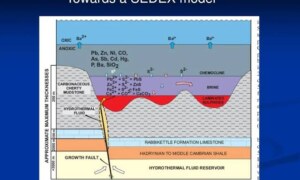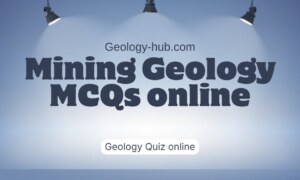Geology 101 is the study of the Earth and its materials, structures, processes, and history. It is a broad field that encompasses many different disciplines, including mineralogy, petrology, paleontology, and geophysics.
Geologists study the Earth’s physical features, including its rocks, minerals, soils, and water. They also study the Earth’s internal structure and the processes that shape its surface, such as earthquakes, volcanic eruptions, and mountain building. Geologists use a variety of tools and techniques, including field observations, laboratory analyses, and computer modeling, to understand the Earth’s past, present, and future.
Geologists work in a variety of settings, including academia, government agencies, and the private sector. They may study the Earth’s resources, such as oil and gas, minerals, and water, or they may focus on environmental issues, such as climate change, natural disasters, and land use.
Overall, geology is a fascinating and important field that helps us understand the Earth and its history, and it has many practical applications in areas such as resource exploration and environmental protection.
Geology is the scientific study of the Earth, its materials, processes, and history. It involves the examination and interpretation of the physical and chemical properties of the Earth and its materials, including rocks, minerals, and soils, as well as the processes that shape and modify the Earth’s surface and interior.
Geologists use a variety of tools and techniques to study the Earth, including field observations, laboratory analyses, and computer modeling. They also use geological maps and cross-sections to understand the spatial relationships between different geological features and to reconstruct the Earth’s history.
One of the main goals of geology is to understand the origin and evolution of the Earth and its various features, such as mountains, oceans, and sedimentary basins. Geologists study the Earth’s composition, structure, and history to understand how it has changed over time and how it will continue to change in the future.
Geologists also study the processes that shape the Earth’s surface and interior, including erosion, sedimentation, mountain building, and tectonic activity. These processes can be studied on a variety of scales, from the formation of small-scale features such as sand dunes and river valleys to the formation of large-scale features such as mountain ranges and ocean basins.
Geologists also study the Earth’s resources, including minerals, oil and natural gas, water, and soil. They use their understanding of the Earth’s geology to locate and extract these resources in a sustainable and responsible manner.
Geologists often work in a variety of settings, including in the field, in laboratories, and in offices. They may work for government agencies, universities, consulting firms, or oil and mining companies. They may also work as educators or researchers, or they may be involved in environmental management or land-use planning.
In summary, geology is a diverse and fascinating scientific discipline that focuses on the study of the Earth and its materials, processes, and history. It involves the use of a variety of tools and techniques to understand the Earth’s composition, structure, and resources, and it has important applications in a wide range of fields, including resource extraction, environmental management, and land-use planning.
Why Study Geology?
Geoscientists follow paths of exploration and discovery in quest of solutions to some of society’s most challenging problems.
- Predicting the behavior of Earth systems and the universe.
- Finding adequate supplies of natural resources, such as ground water, petroleum, and metals.
- Conserving soils and maintaining agricultural productivity.
- Developing natural resources in ways that safeguard the environment.
- Maintaining quality of water supplies.
- Reducing human suffering and property loss from natural hazards, such as volcanic eruptions, earthquakes, floods, landslides, hurricanes, and tsunamis.
- Determining geological controls on natural environments and habitats and predicting the impact of human activities on them.
- Defining the balance between society’s demand for natural resources and the need to sustain healthy ecosystems.
- Understanding global climate patterns.
What Do GEOSCIENTISTS Do?
Geoscientists gather and interpret data about the Earth and other planets. They use their knowledge to increase our understanding of Earth processes and to improve the quality of human life. Their work and career paths vary widely because the geosciences are so broad and diverse. The National Science Foundation considers geology, geophysics, hydrology, oceanography, marine science, atmospheric science, planetary science, meteorology, environmental science, and soil science as the major geoscience disciplines. The following list gives a glimpse of what geoscientists do in these disciplines and a variety of subdisciplines.
Atmospheric scientists study weather processes; the global dynamics of climate; solar radiation and its effects; and the role of atmospheric chemistry in ozone depletion, climate change, and pollution.
Economic geologists explore for and develop metallic and nonmetallic resources; they study mineral deposits and find environmentally safe ways to dispose of waste materials from mining activities.
Engineering geologists apply geological data, techniques, and principles to the study of rock and soil surficial materials and ground water; they investigate geologic factors that affect structures such as bridges, buildings, airports, and dams.
Environmental geologists study the interaction between the geosphere, hydrosphere, atmosphere, biosphere, and human activities. They work to solve problems associated with pollution, waste management, urbanization, and natural hazards, such as flooding and erosion.
Geochemists use physical and inorganic chemistry to investigate the nature and distribution of major and trace elements in ground water and Earth materials; they use organic chemistry to study the composition of fossil fuel (coal, oil, and gas) deposits.
Geochronologists use the rates of decay of certain radioactive elements in rocks to determine their age and the time sequence of events in the history of the Earth.
Geologists study the materials, processes, products, physical nature, and history of the Earth.
Geomorphologists study Earth’s landforms and landscapes in relation to the geologic and climatic processes and human activities, which form them.
Geophysicists apply the principles of physics to studies of the Earth’s interior and investigate Earth’s magnetic, electric, and gravitational fields.
Glacial geologists study the physical properties and movement of glaciers and ice sheets.
Hydrogeologists study the occurrence, movement, abundance, distribution, and quality of subsurface waters and related geologic aspects of surface waters.
Hydrologists are concerned with water from the moment of precipitation until it evaporates into the atmosphere or is discharged into the ocean; for example, they study river systems to predict the impacts of flooding.
Marine geologists investigate the ocean-floor and ocean-continent boundaries; they study ocean basins, continental shelves, and the coastal environments on continental borders.


You made some decent points there. I checked on the net for more information about the issue and found most individuals will go along with your views on this web site.
Pretty! This was a really wonderful article. Thank you for providing this information.